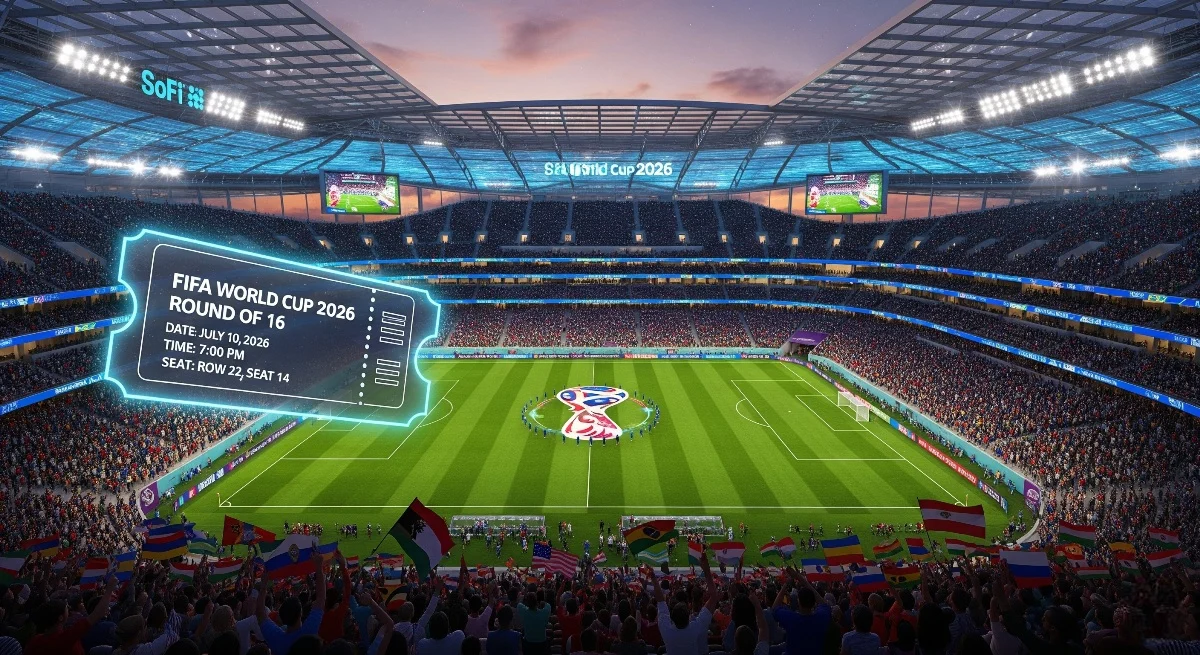2026 FIFA World Cup First Limited Ticket Sales
The FIFA World Cup 2026, co-hosted by Canada, Mexico, and the United States, expands to 48 teams and 104 matches across 16 venues, marking the largest tournament in history. The event kicks off on June 11, 2026, at Estadio Azteca in Mexico City and concludes with the final on July 19, 2026, at MetLife Stadium. Following the Final Draw on December 5, 2025, ticket sales have surged, with nearly two million tickets sold in initial phases and unprecedented demand in the current phase.
As of December 25, 2025, the third phase – the Random Selection Draw – is ongoing, featuring specific matchups and dynamic pricing adjustments. This deep-dive article covers the latest on the FIFA World Cup 2026 ticket sales, including high demand, price controversies, new affordability measures, resale options, and hospitality packages.
FIFA World Cup 2026 Early Sales Phases: Visa Presale and Early Draw Recap
The FIFA World Cup 2026 ticket sales began with the exclusive Visa Presale Draw in September 2025, followed by the Early Ticket Draw in October-November 2025. These phases sold nearly two million tickets to fans from over 200 countries, led by the host nations (United States, Mexico, Canada), England, Germany, and Brazil.
Applications exceeded expectations, setting the stage for intense competition. Fans applied via FIFA.com/tickets in lottery-style draws, with no first-come advantage.
FIFA World Cup 2026 Current Phase: Random Selection Draw
The third phase for FIFA World Cup 2026 tickets – the Random Selection Draw – opened on December 11, 2025, six days after the Final Draw revealed group-stage matchups. This marks the first opportunity to apply for tickets to specific games, including high-profile clashes.
The application window runs until January 13, 2026, at 11:00 ET. Timing of entry does not affect chances – it’s a pure lottery. FIFA reported five million requests in the first 24 hours and over 20 million total by mid-December, underscoring global excitement.
Successful applicants will be notified starting February 2026 and automatically charged. An official Resale/Exchange Marketplace launched on December 15, 2025, for fans to buy or sell remaining tickets securely.
FIFA World Cup 2026 Ticket Pricing: Dynamic Adjustments and Controversy
FIFA World Cup 2026 employs dynamic (variable) pricing for the first time, adjusting costs based on demand and “fixture attractiveness” post-draw. Initial prices started at $60 for group-stage matches, rising to thousands for premium seats.
After the draw, many prices increased significantly – some group-stage tickets reached $700, and Category 1 final seats hit $8,680. This sparked widespread backlash, with fan groups calling it a “monumental betrayal” and accusing FIFA of prioritizing revenue over accessibility.
In response, on December 16, 2025, FIFA introduced a new “Supporter Entry Tier” – limited $60 tickets (capped price) for loyal fans of qualified teams, available for all 104 matches, including the final. These represent about 1.6% of tickets per game (roughly 1,000+ per match, split between teams) and are distributed via national associations.
Critics note this is still far above past tournaments’ cheapest seats (adjusted for inflation) and limited in quantity. FIFA defends the model as aligning with North American market practices and reinvesting revenue into global football development.
FIFA World Cup 2026 Hospitality Packages: Premium Alternatives
For guaranteed access, FIFA World Cup 2026 hospitality packages remain available through official partner On Location at fifa.com/hospitality. These ticket-inclusive options offer premium seating, lounges (e.g., Pitchside Lounge, Champions Club, FIFA Pavilion), dining, entertainment, and perks like meet-and-greets.
Packages include:
- Single-match experiences
- Venue Series (multiple games at one stadium, including final options at MetLife)
- Follow My Team Series (tracking a nation through early stages)
Prices start in the thousands, targeting premium fans. Availability spans all host countries, with customizable options and payment plans.
Navigating FIFA World Cup 2026 Ticket Sales: Tips and Outlook
With demand shattering records for the FIFA World Cup 2026, apply soon in the current Random Selection Draw via FIFA.com/tickets. Create an account early, select preferred matches/categories, and monitor for the new $60 Supporter Entry Tier via your national association.
Future phases include last-minute first-come, first-served sales in spring 2026. Avoid unofficial resale until using FIFA’s platform to prevent scams.
As the tournament approaches (under 200 days away), excitement builds alongside debates on affordability. FIFA emphasizes record reinvestments into the sport, but the FIFA World Cup 2026 ticket process highlights the challenge of balancing global access with commercial realities in the biggest World Cup ever.
For latest updates Click Here!




